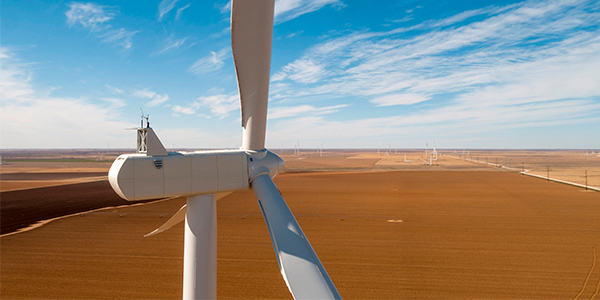By Tom Kleckner
The American Wind Energy Association last week announced a major milestone for U.S. wind energy, saying there are now more than 100 GW of wind farms operating in the country.
That is enough energy to power 32 million American homes, AWEA CEO Tom Kiernan said during a media briefing Oct. 31.
Put another way, he said, it’s enough energy to power California and New Jersey for a year.
“It’s an extraordinary milestone,” Kiernan said. “It’s an extraordinary journey the industry has gone through, and it sets the stage for the journey ahead of us.”
According to AWEA’s third-quarter report, the U.S. now has 100,125 MW of wind capacity, with more than 57,700 wind turbines in operation across 41 states and two U.S. territories. Developers installed eight new wind projects, with a capacity of 1,927 MW, during the quarter. They have brought 3,667 MW online so far this year, a 123% increase over the first three quarters of 2018.
Texas leads the way with 2,129 MW of capacity in 2019, followed by Iowa (536 MW) and Kansas (475 MW).
Kiernan noted the industry’s exponential growth. He said it took 28 years to build the first 25 GW of wind energy but only 11 years to get the next 75 GW into the ground.
AWEA said 22.6 GW of wind projects are under construction and an additional 23.8 GW are in advanced development. The 46.4-GW total is almost half the wind energy operating today.
The development pipeline includes 5,792 MW of offshore wind, which Kiernan said is “similarly taking off [like traditional wind farms], and arguably at a faster clip and exponential growth.”
New York has selected 1,696 MW from two projects to help meet its goal of 9,000 MW of offshore wind by 2035. Virginia Gov. Ralph Northam issued an executive order for the state to develop 2,500 MW of offshore wind by 2026.
Keirnan said he believes the industry has a “good shot” at a tax credit for wind energy and tax extenders for onshore wind.
“Things are moving forward,” he said. “We do anticipate significant further discussion [on legislation] this fall, but again, significant uncertainty. How we get from here to the end of the year is a significant to-be-determined.”
Research firm IHS Markit recently released a report that indicates the sector’s capital spending will increase from $12 billion last year to $14 billion in 2020 and 2021, but taper off as tax credits expire. Wind operators can take advantage of federal tax credits if they begin construction before year-end.
Texas remains the wind energy leader, with 27,036 MW, followed by the “wind alley” states of Iowa (8,965 MW), Oklahoma (8,072 MW) and Kansas (6,128 MW). California rounds out the top five with 5,842 MW.






